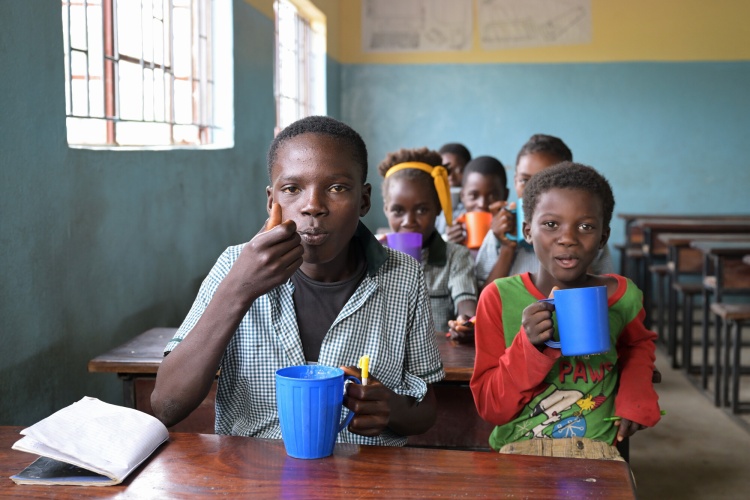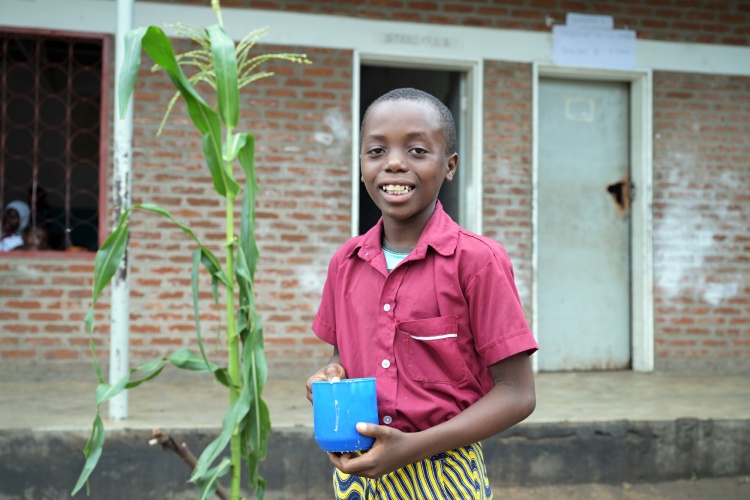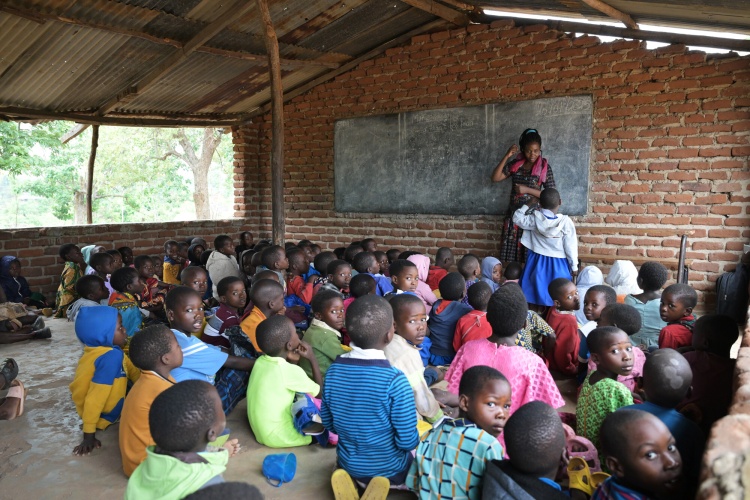World Hunger Day 2025
Are we losing the fight against hunger?
World Hunger Day was established in 2011 to call attention to the global food crisis and inspire action that could help create a world without hunger. So, as we approach this annual marker, how well are we progressing towards that collective goal?
Shockingly, despite there being a surplus of food in the world, global hunger continues to increase. Acute food insecurity and child malnutrition rose for a sixth consecutive year in 2024 and – despite being just a few years away from the ‘Zero Hunger 2030’ goal – continue to affect more than 295 million people across over 50 countries.
The statistics are grim, and they don’t even begin to give a sense of the lived reality for those experiencing hunger and acute food insecurity day-to-day. And that 2030 goal for Zero Hunger – which offered such a great sense of hope and possibility at its inception – is now unanimously considered to be unattainable. Looking at these facts, it is understandable that many of us may question whether creating a world without hunger is even possible.

However, for more than two decades, we’ve been working with communities to address child hunger in an innovative way that effectively alleviates children’s immediate hunger, while equipping communities with a sustainable solution for long-lasting change.
And while hunger still looms large in so many parts of the world, the transformative impact of the Mary’s Meals school feeding programme cannot – and should not – be ignored. A programme that is owned and run by local volunteers, many of whom have firsthand experience of hunger and poverty as a barrier to education. A programme that promises to provide a meal to every pupil, in each place of education where it operates, every school day.
The result is that children not only find relief from hunger, but they are also more able to concentrate in class and more likely to progress with their education:
Before we began serving meals in Mozambique (the most recent country to be added to our programme, last year), 93% of children felt hungry every school day. Once they started receiving Mary’s Meals in 2024, 92% of children said they never worry about hunger at school.
Recent research from our Kenya, Liberia, and Malawi programmes shows 100% of teachers stated that the school feeding programme had a positive impact on the quality of education last year (2024), including improvements in attendance, participation, focus and lesson retention, pass rate, and a reduction in sickness and absenteeism.

Desire is a 13-year-old boy from Malawi who recently began receiving Mary’s Meals at school. He says: “Finding food is hard, I often sleep on an empty stomach. I feel weak and [have] pain in my body when I don’t eat. When there was no food at school, I would be shivering and so tired – I would shiver and shake so much I couldn’t hold my pen and it was difficult to concentrate. Sometimes I would have to leave school to go and try to find food.”
Many children report being able to concentrate better in class and participate more actively after having a school meal. Research from our Kenya, Liberia, Malawi, and Zambia programmes in 2024 showed that while 35% of children felt they could concentrate well before the meal was served, this increased to 98% after they had eaten.
As well as being less hungry and more able to concentrate, children who receive a meal in school are more likely to attend consistently and therefore can have a better chance at progressing in their education. A teacher in Mozambique whose pupils began receiving Mary’s Meals in 2024 recently commented: “Learners come to school on time, they no longer miss classes, and the most interesting [impact] is that I did not register even a single child who got sick through the school year. I have also noticed that children can stay more in school even after classes, playing.”
Perhaps it’s not surprising, then, that in 2023 school meals were added as an official indicator under Sustainable Development Goal 4: Quality Education, signalling global recognition of school meals as a key intervention to improve access to education and ensure inclusive and effective learning environments for all.
For communities delivering our school feeding programme, it is vital to address child hunger in a way that promotes access to education and improves children’s readiness to learn to ensure that the next generation is equipped to take a leading role in the innovation and development required to help create a world without hunger.

Our school feeding programme is a long-term intervention that highlights the fact that people living in hunger are not the problem, but rather the heart of the solution – because long-term, positive change starts with empowering and equipping communities to build sustainable and effective systems to overcome their own challenges in ways that work for them.
Clare Nolan, Head of Programme Development at Mary’s Meals, says: “The strength and authenticity of this programme stems from the community commitment that sits at its core. The local volunteers we partner with to deliver the school feeding programme experience daily challenges as a result of poverty – often driven by conflict, climate change, and economic disruption – yet their tenacity and passion to ensure their children can receive a daily meal at school is a huge part of the driving force behind Mary’s Meals.
“That passion is also evident in the support we receive from those who give donations or donate their time to help us realise our vision that every child can receive a daily meal in their place of education. It is sustained community action in all its forms that will help win the fight against hunger.”
It costs just $31.70 CAD to provide a child with school meals for an entire school year.